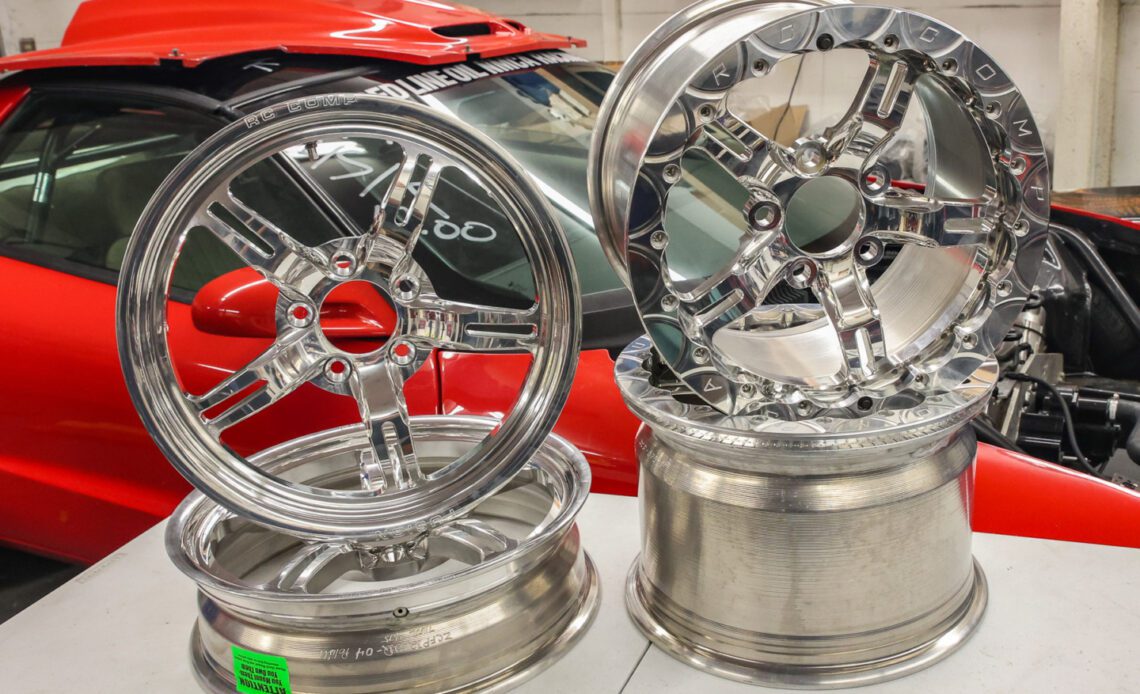Drag-and-drive events are fun to participate in because you get to maximize the amount of time behind the wheel — both racing and driving — of your vehicle — of your vehicle. One of the major factors that will determine said degree of fun at drag-and-drive event is how prepared you are. Today, we’re sitting down with the teams at RC Components, Mickey Thompson, and ARP about drag-and-drive wheel and tire selection.
Your typical drag-and-drive event is going to last close to a week, cover upwards of 1,000 miles, and require a mix of driving and types of road surfaces going from track to track. On top of that, you’ll be making at least one hard pass per day at the track, so your tires are going to take a beating. If you want to even think about finishing an event, let alone doing well in your class, you need to make sure you can make it to each track. The wrong wheels and tires can make that difficult for any drag-and-drive racer.
The wheels you select for drag-and-drive duty need to strike a balance between performance and strength.
Rolling On The Right Wheels
You need to take a few more things into consideration when you’re looking at wheels for a street/strip car versus an all-out race car. A vehicle that will see heavy street use needs wheels that are strong…that’s a given, but they also need to account for the brakes. When you’ve modified your vehicle’s suspension and brakes, it becomes even more important to measure for a set of wheels.
RJ Clutter from RC Components explains how you can avoid brake-related headaches when buying wheels for a drag-and-drive application.
“For older vehicles and vehicles that have modified suspensions, you’ll need to take some precise measurements. We have tools on our website that show people what they need to measure. There are quite a few direct-fit options for late-model muscle cars that will clear OEM brakes. If someone wants to go to a smaller wheel than the OEM size, they’ll need a brake conversion of some kind so smaller wheels will fit. It’s always best to check with a wheel company and measure before you buy anything,” Clutter says.
Proper brake clearance should be the first thing you consider when sizing wheels and tires for drag-and-drive duty.
Besides making sure the wheels will clear your brakes, you need to look for wheels that are SFI-certified. A wheel that’s SFI-certified has passed SFI testing and is much stronger than a non-SFI-certified wheel. Your plan is to…
Click Here to Read the Full Original Article at DragzineDragzine…

